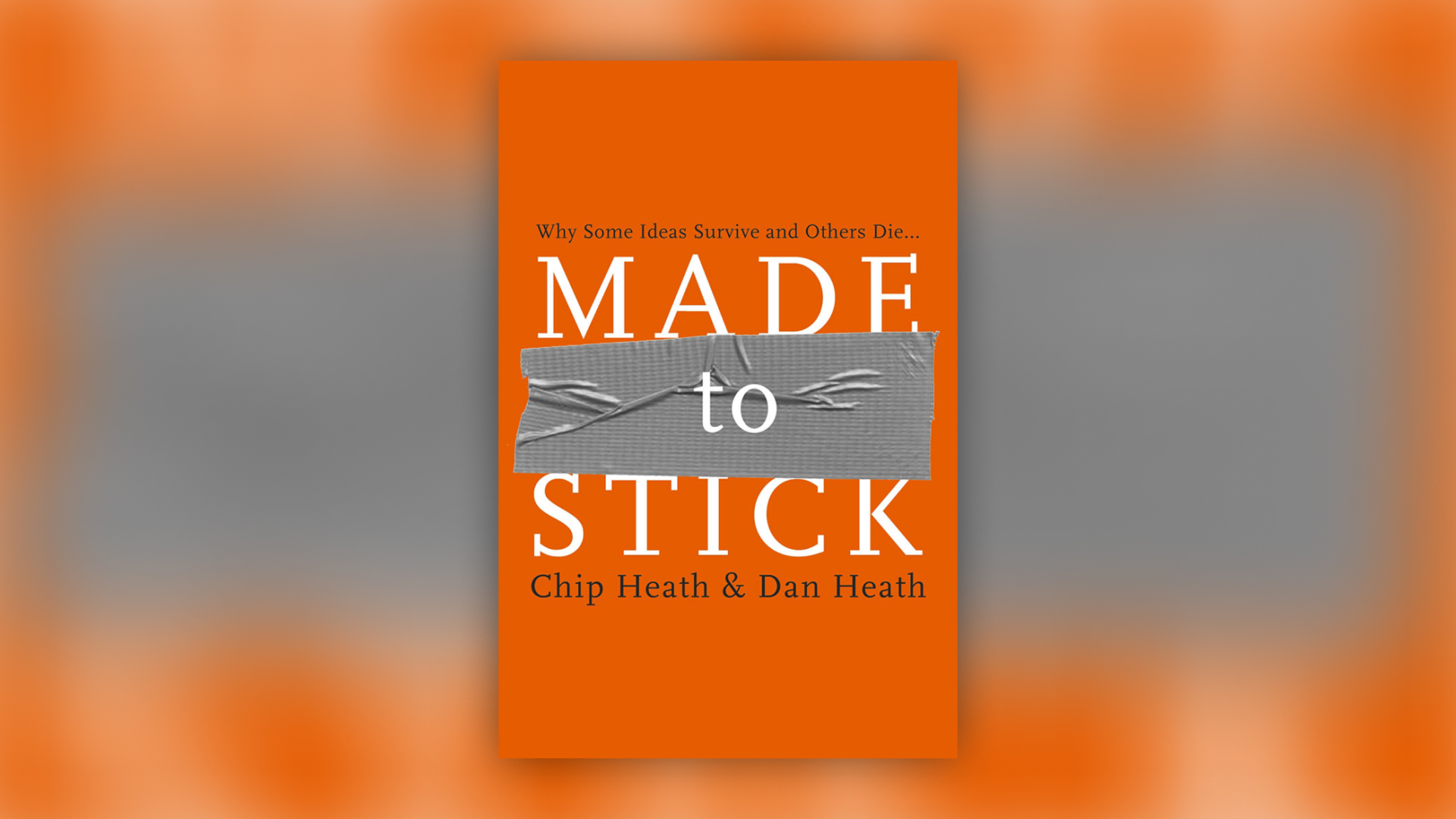Resources
Made To Stick by Chip and Dan Heath
Learn from popcorn, kidneys and Frank Sinatra to become unforgettable.
Stephanie Wong | 10 Nov 2017

This post uses affiliate links which means that when you buy an item using the link provided we receive a portion of the sale. Affiliate links are marked with a ⟡
Everyone believes there is huge human suffering across the world, but most of us don’t care enough to do anything. To change our behaviour, sticky messaging is the answer.
This book sits on the business shelves of any bookstore, but its methods and teaching are vital for community organisers and civil society organisations who must get better at communicating.
Three takeaways
- How you communicate your campaign determines whether it lives or dies.
- Effective communication spells SUCCES(s): simple, unexpected, concrete, credible, emotional and story.
- Once you’re an expert, you often become a terrible communicator.
The six principles of succes(s)

As we pored over hundreds of sticky ideas, we saw over and over again the same six principles at work.
Chip and Dan credit six key principles to effective messaging: simplicity, unexpectedness, concreteness, credibility, emotions and stories (it spells success well almost). Each principle is illustrated with stories to make you gasp, laugh and never forget. From tales of Frank Sinatra to a stolen kidney to the global popcorn campaign changing cinema gourmet across the States, Chip and Dan demonstrate how to make things stick.
The curse of knowledge
When the curse of knowledge kicks in, and we forget what its like not to know what we know.
Once we become experts, we often become bad communicators. Chip and Dan call this the curse of knowledge a curse so many of us in the civil society sector is riddled with.
Keep it simple
If were to succeed, the first step is this: Be simple.
We must deliver our arguments simply to rid ourselves of the curse of knowledge. People don’t have the time or energy to understand what you are saying. Simple does not mean watering down your message or pushing a cheesy slogan. Think proverb simple, short and deeply meaningful. Get to the core of an idea and become a master of exclusion.
Bring in the unexpected
Surprise gets our attention. Some naturally sticky ideas propose surprising facts.
The best way to get our attention is by surprise. What unknown facts can you add or a messenger that no one expects? Are you being creative, imaginative or shocking? Can you create mystery in your messaging? Be careful not to overstep the line into gimmickry. Once you get people’s attention, you need to keep it.
Watch your language
Language is often abstract, but life is not.
Speaking in the abstract is difficult to understand and even more challenging to remember. We must be concrete and visual, like the fables from centuries ago. This includes concrete words. Studies reveal that words like avocado or bicycle are much easier to remember than justice or inequality. We can see a bike concretely in our minds; the same can not be said for justice.
Credibility is crucial
Sticky ideas have to carry their own credentials. We need ways to help people test our ideas for themselves.
What builds credibility are vivid details bringing statistics to life, celebrities or everyday people we can all relate to. Credibility is crucial for getting people to act on a problem. It is how we persuade those who do not believe in our message to change their mind. How can you make your campaign more credible to those not with you yet?
Emotions should not be avoided
If I look at the mass, I will never act. If I look at the one, I will.
We must appeal to the emotional self-interest of those around us to change our behaviour. Emotional tugs matter. Non-profits have quickly learned this is true, focusing their fundraising on one child, one polar bear with a specific name, etc. Nobody wants to give money to the administration, even if it is central to the effectiveness of an organisation. Remember, this must be sensitively done, or your messaging can be exploitative.
Tell us a story
How to get people to act on our ideas? We tell stories.
Stories teach us essential lessons and teach us how to act in uncertainty. They stop the audience from being passive. We participate with the storyteller. You put your self in the shoes of the person speaking in a way no other method can.